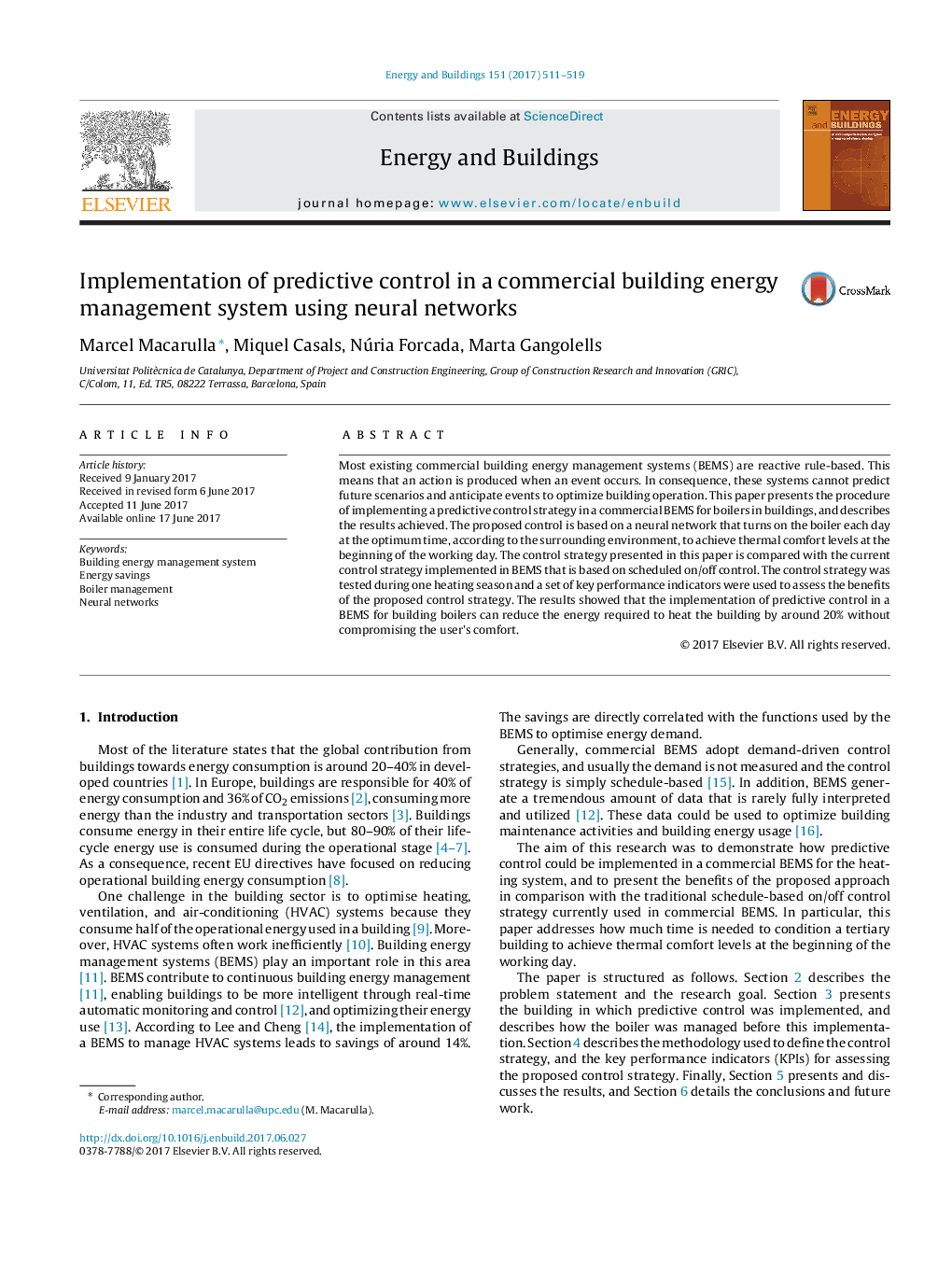| Article ID | Journal | Published Year | Pages | File Type |
|---|---|---|---|---|
| 6481130 | Energy and Buildings | 2017 | 9 Pages |
â¢An adaptive control strategy was developed to manage building boilers.â¢Data tracked by a BEMS were used to improve the performance of the building.â¢Savings were found to amount to nearly 20% with the adaptive control.â¢Adaptive control reduced the boiler operation costs and ensured the building's thermal comfort.
Most existing commercial building energy management systems (BEMS) are reactive rule-based. This means that an action is produced when an event occurs. In consequence, these systems cannot predict future scenarios and anticipate events to optimize building operation. This paper presents the procedure of implementing a predictive control strategy in a commercial BEMS for boilers in buildings, and describes the results achieved. The proposed control is based on a neural network that turns on the boiler each day at the optimum time, according to the surrounding environment, to achieve thermal comfort levels at the beginning of the working day. The control strategy presented in this paper is compared with the current control strategy implemented in BEMS that is based on scheduled on/off control. The control strategy was tested during one heating season and a set of key performance indicators were used to assess the benefits of the proposed control strategy. The results showed that the implementation of predictive control in a BEMS for building boilers can reduce the energy required to heat the building by around 20% without compromising the user's comfort.
